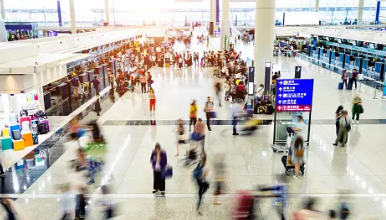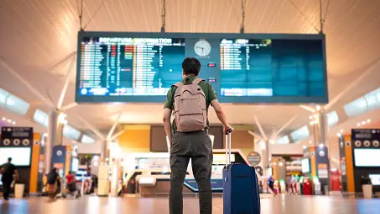A software update has caused an IT meltdown, and more than 8 million computers worldwide have been affected. As a result of this, there was a widespread disruption to flights, medical appointments, and train services, the full extent of which is only now being realized. Experts have warned that more such incidents in the future will need planning at the societal level.

A Huge IT Meltdown
Imagine waking up one morning to find that your computer refuses to work. Now, imagine this happening to millions of computers all around the world simultaneously. That is what happened recently when Microsoft suffered the largest IT outage in history.
What Happened?
On Saturday, Microsoft announced that the update of software from a cybersecurity company called CrowdStrike had hit nearly 8.5 million devices running Microsoft Windows. No small problem. More on the lines of a big mess everywhere.
Impact on Daily Life
This meltdown didn’t just affect your personal computer. It had massive problems around the world:
Flights were grounded, and planes couldn’t take off.
Patients were unable to book appointments with their doctors.
Passenger trains were delayed; football clubs failed to sell tickets; and media companies went off air.
Microsoft estimates that less than 1% of all Windows machines were affected by the update, but considering the huge number of Windows users, this would still mean millions of people were affected by this issue.
A Record-Breaking Outage
One expert described the incident as the largest IT outage in history. Comparing that with the WannaCry cyber-attack back in 2017, it was estimated that it had hit about 300,000 computers in 150 countries. Then there was another gigantic attack called NotPetya, which attacked over 2,300 organizations in more than 100 countries, with losses reaching as high as $11 billion. Yet this recent outage was even bigger.
This is not unprecedented, but I’m struggling to think of an outage at quite this scale,” said Ciaran Martin, former head of the UK’s National Cyber Security Centre. “It has happened over the years, but this is one of the biggest.”

Travel Chaos
Hundreds of passengers hit by flight cancellations tried to sidestep the anarchy at the Port of Dover to catch ferries to Europe but were hit by long delays as authorities grapple with a traffic nightmare.
About 200,000 people suffered delays and cancellations as a result of the IT meltdown. Many travel insurers refused to pay out to rearrange holidays.
Problems Everywhere
This also affected NHS services, train services, cash machines, and contactless payments. Even emergency services were put on long delays as GP surgeries couldn’t make appointments.
Although the airports said their systems were back up, flights continued to be delayed or cancelled. Long queues built up at the airports of Heathrow and Gatwick, where passengers waited for hours just to check in.
Expert Warnings
Experts warn that this mayhem is a harbinger. Society should prepare for more IT meltdowns in the future. A warning came from Professor Ciaran Martin, who said that countries would need to learn to cope with such incidents, as they might become more common.
Sir Nigel Shadbolt, a computer scientist, likened the IT outage to a pandemic. He said people need to think about resilience in the same way as the pandemic. “We depend on these systems, and by and large, they are working to very high levels of quality. But when they do go wrong, and it’s like a pandemic, literally we should draw similar lessons,” he said.
The Road Ahead
It was a glitch in CrowdStrike’s cybersecurity software that caused the meltdown, crashing millions of computers with the dreaded “blue screen of death.” Although the problem was quickly identified and fixed, the incident showed how vulnerable our systems can be.

As the society becomes more and more dependent on technology, similar failures can occur in the future only due to the fact that experts reckon. According to them, better preparation and resilience are required to face such crises.
Conclusion
This IT meltdown affected millions of people and literally outlined the importance of our technology systems. It was one of the largest outages ever experienced, but it has taught us that we should always be prepared for any such situation that may arise in the future. Society can much more well learn from these events to be resilient and equipped to face such challenges.








